⭳
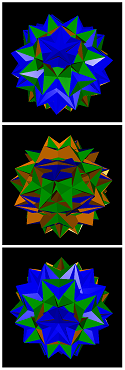
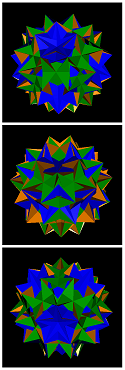
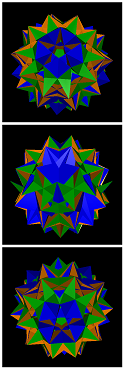
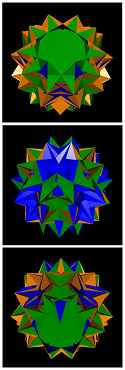
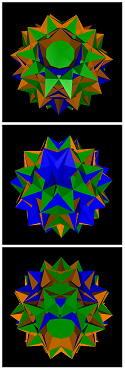
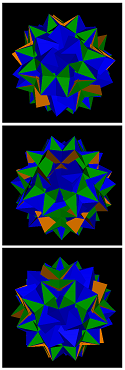
the corresponding VRML preview in this canvas
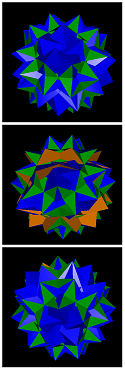
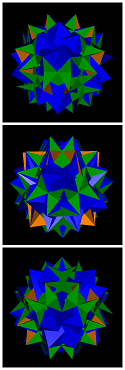
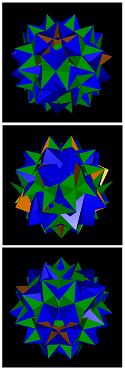
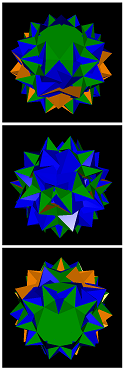
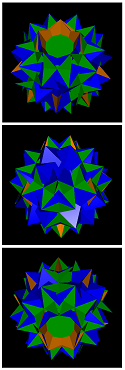
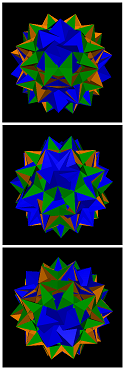
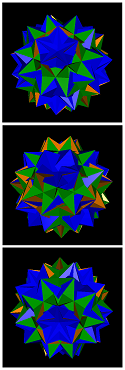
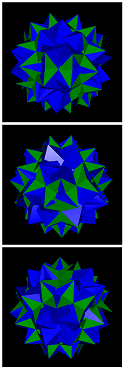
gidrid-24-50-15-v2
gidrid-24-50-15-v3
gidrid-24-50-15-v4
gidrid-24-50-15-v5
gidrid-24-50-15-v6
gidrid-24-50-15-v7
gidrid-24-50-15-v8
gidrid-24-50-15-v9
gidrid-24-50-15-v10
gidrid-24-50-15-v11
gidrid-24-50-15-v12
gidrid-24-50-15-v13
gidrid-24-50-15-v14
gidrid-24-50-15-v15
gidrid-24-50-15-v16
gidrid-24-50-15-v17
gidrid-24-50-15-v18
gidrid-24-50-15-v19
gidrid-24-50-15-v20
gidrid-24-50-15-v21
gidrid-24-50-15-v22
gidrid-24-50-15-v24
gidrid-24-50-15-v25
gidrid-24-50-15-v26
gidrid-24-50-15-v27
gidrid-24-50-15-v28
gidrid-24-50-15-v29
gidrid-24-50-15-v30
gidrid-24-50-15-v31
gidrid-24-50-15-v32
gidrid-24-50-15-v33
gidrid-24-50-15-v34
gidrid-24-50-15-v35
gidrid-24-50-15-v36
gidrid-24-50-15-v37
gidrid-24-50-15-v38
gidrid-24-50-15-v39
gidrid-24-50-15-v40
gidrid-24-50-15-v41
gidrid-24-50-15-v42
gidrid-24-50-15-v43
gidrid-24-50-15-v44
gidrid-24-50-15-v46
gidrid-24-50-15-v47
gidrid-24-50-15-v48
gidrid-24-50-15-v49
gidrid-24-50-15-v50
gidrid-24-50-15-v51
gidrid-24-50-15-v52
gidrid-24-50-15-v53
gidrid-24-50-15-v54
gidrid-24-50-25-v1
gidrid-24-50-25-v2
gidrid-24-50-25-v3
gidrid-24-50-25-v4
gidrid-24-50-25-v5
gidrid-24-50-25-v6
gidrid-24-50-25-v7
gidrid-24-50-25-v8
gidrid-24-50-25-v9
gidrid-24-50-25-v10
gidrid-24-50-25-v11
gidrid-24-50-25-v12
gidrid-24-50-25-v14
gidrid-24-50-25-v15
gidrid-24-50-25-v16
gidrid-24-50-25-v17
gidrid-24-50-25-v18
gidrid-24-50-25-v19
gidrid-24-50-25-v20
gidrid-24-50-25-v21
gidrid-24-50-25-v22
gidrid-24-50-25-v23
gidrid-24-50-25-v24
gidrid-24-50-25-v25
gidrid-24-50-25-v26
gidrid-24-50-25-v27
gidrid-24-50-25-v28
gidrid-24-50-25-v29
gidrid-24-50-25-v30
gidrid-24-50-25-v31
gidrid-24-50-25-v32
gidrid-24-50-25-v33
gidrid-24-50-25-v34
gidrid-24-50-25-v36
gidrid-24-50-25-v37
gidrid-24-50-25-v38
gidrid-24-50-25-v39
gidrid-24-50-25-v40
gidrid-24-50-25-v41
gidrid-24-50-25-v42
gidrid-24-50-25-v43
gidrid-24-50-25-v44
gidrid-24-50-25-v45
gidrid-24-50-35-v1
gidrid-24-50-35-v2
gidrid-24-50-35-v3
gidrid-24-50-35-v4
gidrid-24-50-35-v5
gidrid-24-50-35-v6
gidrid-24-50-35-v7
gidrid-24-50-35-v8
gidrid-24-50-35-v9
gidrid-24-50-35-v10
gidrid-24-50-35-v11
gidrid-24-50-35-v13
gidrid-24-50-35-v14
gidrid-24-50-35-v15
gidrid-24-50-35-v16
gidrid-24-50-35-v17
gidrid-24-50-35-v18
gidrid-24-50-35-v19
gidrid-24-50-35-v20
gidrid-24-50-35-v21
gidrid-24-50-35-v22
gidrid-24-50-35-v23
gidrid-24-50-35-v24
gidrid-24-50-45-v1
gidrid-24-50-45-v2
gidrid-24-50-45-v3
gidrid-24-50-45-v4
gidrid-24-50-45-v5
gidrid-24-60-10-v3
gidrid-24-60-10-v4
gidrid-24-60-10-v5
gidrid-24-60-10-v7
gidrid-24-60-10-v9
gidrid-24-60-10-v10
gidrid-24-60-10-v11
gidrid-24-60-10-v12
gidrid-24-60-10-v13
gidrid-24-60-10-v14
gidrid-24-60-10-v15
gidrid-24-60-10-v16
gidrid-24-60-10-v17
gidrid-24-60-10-v18
gidrid-24-60-10-v19
gidrid-24-60-10-v20
gidrid-24-60-10-v21
gidrid-24-60-10-v22
gidrid-24-60-10-v23
gidrid-24-60-10-v24
gidrid-24-60-10-v25
gidrid-24-60-10-v26
gidrid-24-60-10-v27
gidrid-24-60-10-v28
gidrid-24-60-10-v29
gidrid-24-60-10-v31
gidrid-24-60-10-v32
gidrid-24-60-10-v33
gidrid-24-60-10-v34
gidrid-24-60-10-v35
gidrid-24-60-10-v36
gidrid-24-60-10-v37
gidrid-24-60-10-v38
gidrid-24-60-10-v39
gidrid-24-60-10-v40
gidrid-24-60-10-v41
gidrid-24-60-10-v42
gidrid-24-60-10-v43
gidrid-24-60-10-v44
gidrid-24-60-10-v45
gidrid-24-60-10-v46
gidrid-24-60-10-v47
gidrid-24-60-10-v53
gidrid-24-60-10-v54
gidrid-24-60-10-v55
gidrid-24-60-10-v56
gidrid-24-60-10-v58
gidrid-24-60-20-v1
gidrid-24-60-20-v2
gidrid-24-60-20-v3
gidrid-24-60-20-v4
gidrid-24-60-20-v5
gidrid-24-60-20-v6
gidrid-24-60-20-v7
gidrid-24-60-20-v8
gidrid-24-60-20-v9
gidrid-24-60-20-v10
gidrid-24-60-20-v11
gidrid-24-60-20-v12
gidrid-24-60-20-v13
gidrid-24-60-20-v14
gidrid-24-60-20-v15
gidrid-24-60-20-v16
gidrid-24-60-20-v17
gidrid-24-60-20-v18
gidrid-24-60-20-v19
gidrid-24-60-20-v20
gidrid-24-60-20-v22
gidrid-24-60-20-v23
gidrid-24-60-20-v24
gidrid-24-60-20-v25
gidrid-24-60-20-v26
gidrid-24-60-20-v27
gidrid-24-60-20-v28
gidrid-24-60-20-v29
gidrid-24-60-20-v30
gidrid-24-60-30-v2
gidrid-24-60-30-v3
gidrid-24-60-30-v4
gidrid-24-60-30-v5
gidrid-24-60-30-v6
gidrid-24-60-30-v7
gidrid-24-60-30-v8
gidrid-24-60-30-v9
gidrid-24-60-30-v10
gidrid-24-60-30-v11
gidrid-24-70-5-v1
gidrid-24-70-5-v2
gidrid-24-70-5-v4
gidrid-24-70-5-v5
gidrid-24-70-5-v6
gidrid-24-70-5-v7
gidrid-24-70-5-v8
gidrid-24-70-5-v9
gidrid-24-70-5-v10
gidrid-24-70-5-v11
gidrid-24-70-5-v12
gidrid-24-70-5-v13
gidrid-24-70-5-v14
gidrid-24-70-5-v15
gidrid-24-70-5-v16
gidrid-24-70-5-v17
gidrid-24-70-5-v18
gidrid-24-70-5-v19
gidrid-24-70-5-v20
gidrid-24-70-5-v21
gidrid-24-70-5-v22
gidrid-24-70-5-v23
gidrid-24-70-5-v24
gidrid-24-70-15-v2
gidrid-24-70-15-v3
gidrid-24-70-15-v4
gidrid-24-70-15-v5
gidrid-24-70-15-v6
gidrid-24-70-15-v7
gidrid-24-70-15-v8
gidrid-24-80-0-v2
gidrid-24-80-0-v4
gidrid-24-40-20-v4
gidrid-24-40-20-v5
gidrid-24-40-20-v6
gidrid-24-40-20-v9
gidrid-24-40-20-v10
gidrid-24-40-20-v13
gidrid-24-40-20-v14
gidrid-24-40-20-v15
gidrid-24-40-20-v16
gidrid-24-40-20-v17
gidrid-24-40-20-v18
gidrid-24-40-20-v19
gidrid-24-40-20-v20
gidrid-24-40-20-v21
gidrid-24-40-20-v22
gidrid-24-40-20-v23
gidrid-24-40-20-v24
gidrid-24-40-20-v25
gidrid-24-40-20-v26
gidrid-24-40-20-v27
gidrid-24-40-20-v28
gidrid-24-40-20-v30
gidrid-24-40-20-v31
gidrid-24-40-20-v32
gidrid-24-40-20-v33
gidrid-24-40-20-v34
gidrid-24-40-20-v35
gidrid-24-40-20-v36
gidrid-24-40-20-v37
gidrid-24-40-20-v38
gidrid-24-40-20-v39
gidrid-24-40-20-v42
gidrid-24-40-20-v43
gidrid-24-40-20-v44
gidrid-24-40-30-v1
gidrid-24-40-30-v2
gidrid-24-40-30-v3
gidrid-24-40-30-v4
gidrid-24-40-30-v5
gidrid-24-40-30-v6
gidrid-24-40-30-v7
gidrid-24-40-30-v8
gidrid-24-40-30-v10
gidrid-24-40-30-v11
gidrid-24-40-30-v12
gidrid-24-40-30-v13
gidrid-24-40-30-v14
gidrid-24-40-30-v15
gidrid-24-40-30-v16
gidrid-24-40-30-v17
gidrid-24-40-30-v18
gidrid-24-40-30-v19
gidrid-24-40-30-v20
gidrid-24-40-30-v21
gidrid-24-40-30-v22
gidrid-24-40-30-v23
gidrid-24-40-30-v24
gidrid-24-40-30-v25
gidrid-24-40-30-v26
gidrid-24-40-30-v27
gidrid-24-40-30-v28
gidrid-24-40-30-v29
gidrid-24-40-30-v30
gidrid-24-40-30-v32
gidrid-24-40-30-v33
gidrid-24-40-30-v34
gidrid-24-40-30-v35
gidrid-24-40-30-v36
gidrid-24-40-30-v37
gidrid-24-40-30-v38
gidrid-24-40-30-v39
gidrid-24-40-30-v40
gidrid-24-40-30-v41
gidrid-24-40-30-v42
gidrid-24-40-30-v43
gidrid-24-40-30-v44
gidrid-24-40-30-v45
gidrid-24-40-30-v46
gidrid-24-40-30-v47
gidrid-24-40-30-v48
gidrid-24-40-30-v49
gidrid-24-40-30-v50
gidrid-24-40-30-v51
gidrid-24-40-30-v52
gidrid-24-40-30-v54
gidrid-24-40-40-v3
gidrid-24-40-40-v4
gidrid-24-40-40-v5
gidrid-24-40-40-v7
gidrid-24-40-40-v8
gidrid-24-40-40-v9
gidrid-24-40-40-v10
gidrid-24-40-40-v11
gidrid-24-40-40-v12
gidrid-24-40-40-v13
gidrid-24-40-40-v14
gidrid-24-40-40-v15
gidrid-24-40-40-v16
gidrid-24-40-40-v17
gidrid-24-40-40-v18
gidrid-24-40-40-v19
gidrid-24-40-40-v20
gidrid-24-40-40-v21
gidrid-24-40-40-v22
gidrid-24-40-40-v23
gidrid-24-40-40-v27
gidrid-24-40-40-v28
gidrid-24-40-40-v29
gidrid-24-40-50-v1
gidrid-24-40-50-v2
gidrid-24-40-50-v3
gidrid-24-40-50-v4
gidrid-24-40-50-v5
gidrid-24-40-50-v6